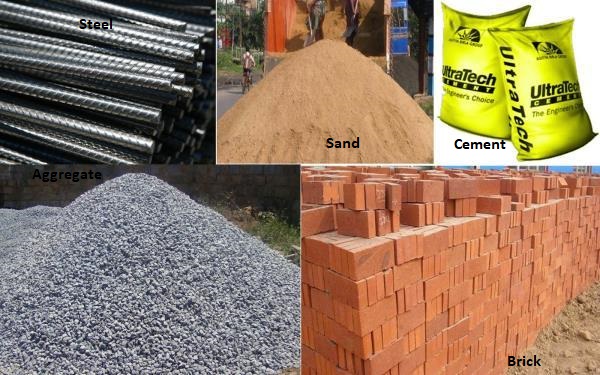Particle Density Vs Bulk Density
Particle Density: Particle density is the measurement of mass per unit volume in a given substance. It shows how closely packed particles are within a specific space, hence it remains constant. The particle density is expressed in terms of mass per unit volume, such as gram per cubic centimeter (g/cm³) or kilogram per cubic meter (kg/m³).
Bulk Density: Bulk density is the measurement of mass of a material per unit volume, which includes both the solid particles and the void spaces between them. Bulk density is expressed in terms of mass per unit volume, such as gram per cubic centimeter (g/cm³) or kilogram per cubic meter (kg/m³). It can vary along with degree of compaction.
Density of RCC, PCC, Sand, Cement and Aggregate -Unit Weight
Density is the measure of materials per unit volume which is used in various fields of science and technology. In this post we will see the density or unit weight of various construction materials which are used in estimation or calculation of materials.
Density of RCC (Reinforced Cement Concrete)
Density of RCC depends upon the quality of inclusive materials and their proportions in the concrete. Higher specific gravity material provides higher density of the concrete. See the density of RCC (Reinforced Cement Concrete) is given below.
- Density of RCC (Reinforced Cement Concrete) is 2500 kg/m³.
- Density of RCC (Reinforced Cement Concrete) is 156.1 lb/ft³.
- Density of RCC (Reinforced Cement Concrete) is 2.5 ton/m³.
- Density of RCC (Reinforced Cement Concrete) is 0.0025 kg/cm³.
Density of PCC (Plain Cement Concrete)
Density of PCC also depends upon the quality of inclusive materials and their proportions in the concrete. Higher specific gravity material provides higher density of the concrete and lower specific gravity of material gives lower density. Also, amount of water plays a vital role to maintain the density of the concrete. See the density of PCC (Plain Cement Concrete) is given below.
- Density of PCC (Plain Cement Concrete) is 2400 kg/m³.
- Density of PCC (Plain Cement Concrete) is 149.8 lb/ft³.
- Density of PCC (Plain Cement Concrete) is 2.4 ton/m³.
- Density of PCC (Plain Cement Concrete) is 0.0024 kg/cm³.
Density of OPC (Ordinary Portland Cement)
Density of OPC cement depends upon the particle size of the cement and air voids among their particles. Generally, density of OPC (Ordinary Portland Cement) is 1440 kg/m³.
Density of PPC (Portland Pozzolana Cement)
Density of PPC cement depends upon the particle size of the cement and air voids among their particles. Generally, density of PPC (Portland Pozzolana Cement) is 1440 kg/m³.
Note: It is seen that specific gravity of OPC cement is around 3.15 and specific gravity of PPC cement is around 2.90, but the bulk density or unit weight of both cement is around 1440 kg/m³.
Density of Sand (River Sand) or Density of Fine Aggregate
Density of sand depends upon the particle size, moisture content and porosity etc.
- Density of dry sand in loose condition is 1442 kg/m³.
- Density of dry sand is 1602 kg/m³.
- Density of dry sand in rammed or compacted condition is 1682 kg/m³.
- Density of wet sand is 1922 kg/m³.
- Density of wet sand packed condition is 2082 kg/m³.
Density of Coarse Aggregate
Density of coarse aggregate depends upon their particle shape and size mainly. The density of coarse aggregate ranges from 1200 kg/m³ to 1800 kg/m³ or 75 lb/ft³ to 112 lb/ft³.
The relative density of coarse aggregate varies from 2400 kg/m³ to 2900 kg/m³.
Density of Steel
Density of steel is 7850 kg/m³ (7.85 g/cc or 490 lb/ft³).
Density of Stainless Steel
Density of stainless steel ranges from 7500 kg/m³ to 8000 kg/m³.
Density of Cement Mortar
Density of cement mortar is approx 2080 kg/m³.
Density of Solid Clay Bricks
The density of solid burnt clay bricks is around 2000 kg/m³.
One can refer IS:875 (Part-1) to see detailed density of various materials.



